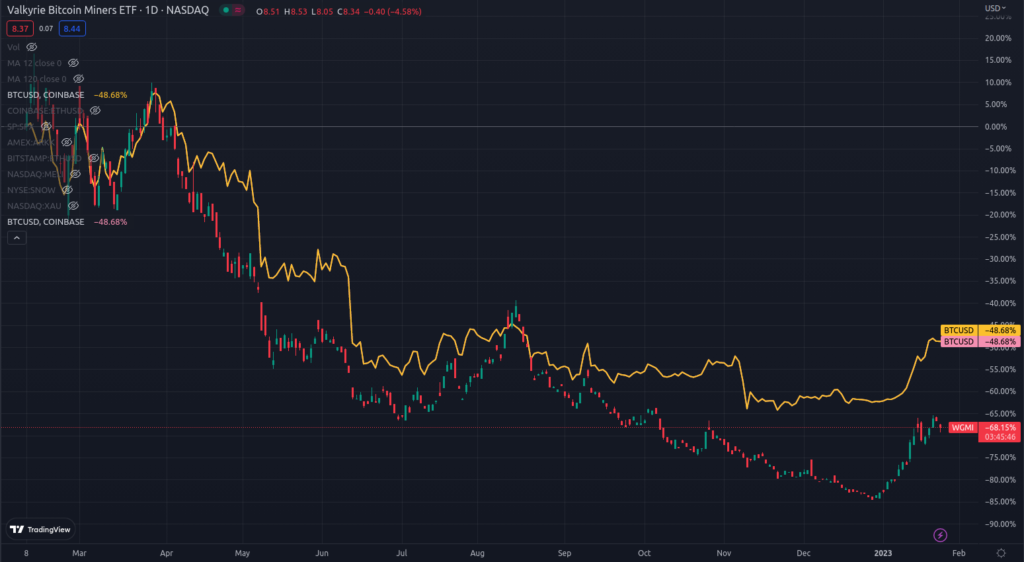Cryptocurrency investors frequently ask themselves whether they should buy digital assets on their own or rather invest into a fund that deploys and manages their capital for them. Both approaches come with a number of advantages and disadvantages. In the following we’re highlighting the reasons in favor and against using a hedge fund to invest in cryptocurrencies.
The Arguments in Favor of Hedge Fund Investing
The first reason in favor of using a Hedge Fund is a very compelling one: storing your own cryptocurrencies is incredibly cumbersome. A number of options are available but none of them is without flaws. Opting for self custody with a hardware wallet is difficult. You must reset your hardware wallet once it is delivered to you and thereafter configure it. It is very important to keep your seed phrase safe. Even so there is still the risk that someone might get access to your seed or you lose it. As you engage with your hardware wallet on the blockchain there is the risk that you sign a malicious contract and lose your precious funds. On top it is painful to deal with the frequent software updates of the manufacturers in order to be able to use your wallet. Hot wallets such as Metamask and Coinbase Wallet are no real alternatives. They are generally not considered as safe enough in order to store large amounts of cryptocurrencies on them.
Leaving cryptocurrencies on an exchange is not a safe option either. There is a long track record of exchange incidences including hacks and theft reaching from Mt. Gox to FTX. In the aftermath of the FTX fraud case in early November 2022 the balance of crypto assets on exchanges started to drop sharply.

Therefore using a custodian such as a professional Hedge Fund removes the worries of storing cryptocurrencies from investors especially in the absence of sufficient regulation.
Another advantage of investing into cryptocurrencies via a Hedge Fund is diversification. It is way easier to achieve a diversified basket of crypto assets instead of buying every asset individually. Furthermore, Hedge Fund investors might get access to private deals involving tokens that are not yet traded publicly on the market.
Last but not least investors can save a lot of time by letting somebody else manage their cryptocurrency portfolio. Researching the digital assets to invest in requires a lot of effort and skills that not everybody has. If you choose to invest via a Hedge Fund you don’t need to worry about finding the best altcoins and monitoring the market on your own since this is taken care of for you by experts.
The Con’s of Investing into a Cryptocurrency Hedge Fund
Despite the numerous advantages investing into a cryptocurrency Hedge Fund also comes with various downsides. One of the most significant downsides is the counterparty risk. The fund manager might misappropriate the assets or protect them insufficiently from hackers. In order to contain such risks investors should inquire about the internal controls and custody solutions used at the Hedge Fund they plan to invest in.
Another downside of investing in a cryptocurrency Hedge Fund is the management fee. Depending on the fund the fee can be very different. There are typically two types of fees. One fee is the management fee that you will need to pay in any case and which is in the low single digit percentage range. The second fee is optional and based on performance. It is usually significantly higher but only applies on the profits that you realized from the Hedge Fund.
Hedge Funds vs Venture Capital Funds vs Alternative Cryptocurrency Investment Vehicles
As opposed to Venture Capital Funds a cryptocurrency Hedge Funds invests predominantly in already liquid cryptocurrency assets. The investment approach of a Venture Capital Fund on the other hand is therefore arguably more risky compared to a Hedge Fund. There is a higher likelihood that investors will lose their capital with a VC Fund. However, in the case that things go well the potential returns are higher. Nevertheless in an asset class that offers such a high volatility as cryptocurrencies do it might not be worth it to chase for additional risk.
Another option to get exposure to the cryptocurrency space is the Valkyrie Bitcoin Miners ETF $WGMI. It is an actively managed ETF that invests in publicly listed Bitcoin mining companies. Note that through that ETF you only get exposure to the Bitcoin mining industry but not other sectors of the cryptocurrency market. Also note that the ETF in the past was even more volatile than Bitcoin and did not exactly track the $BTC price performance.

Besides $WGMI there are further alternatives for investors to get exposure to Bitcoin via the stock market. Michael Saylor has positioned his company Microstrategy $MSTR as essentially a publicly traded Bitcoin derivative. He adopted the Treasury Reserve Policy of Microstrategy in a way that all available cash is used for buying Bitcoin. As a consequence the $MSTR stock is trading closely with the Bitcoin price.
Since the IPO of Coinbase in April 2021 $COIN is another option to get exposure to cryptocurrencies via the traditional stock market. The evolution of the Coinbase stock depends considerably on the trading volume of the exchange, institutional adoption and of course the overall cryptocurrency market capitalization. The higher the market capitalization of the industry the higher the trading volume and the higher the valuations of the VC portfolio of Coinbase that was accumulated through its VC arm Coinbase Ventures. Lately staking is starting to play a more important role for Coinbase revenues. Coinbase charges users a 25% fee on staking rewards. The amount of $ETH staked on Coinbase has increased considerably over the past 6 months. However, $COIN is not precisely correlated to the price of Bitcoin or Ethereum and instead is partially traded like a tech stock.
Since no Bitcoin spot ETF was approved by the SEC US investors for now have only the option to purchase the Grayscale Investment Trusts for Bitcoin and Ethereum. Grayscale is part of Digital Currency Group, a crypto conglomerate that operates several cryptocurrency businesses including the news outlet CoinDesk and the crypto lender Genesis which is currently in bankruptcy proceedings. One of the big downsides of investing in the Grayscale trusts is that the underlying cryptocurrency assets can not be redeemed and therefore the trust frequently is trading at a huge discount. The discount reached up to -50% at its peak.
Conclusion
In summary almost all options that provide exposure to cryptocurrencies come with some downsides. This is most likely one of the reasons why cryptocurrency adoption overall remains relatively low. On the other hand this also shows that there are tremendous opportunities in the space until better investment vehicles are built by the market and approved by the regulators. In the meantime cryptocurrency Hedge Funds remain one of the best ways for accredited investors to get exposure to the space.

